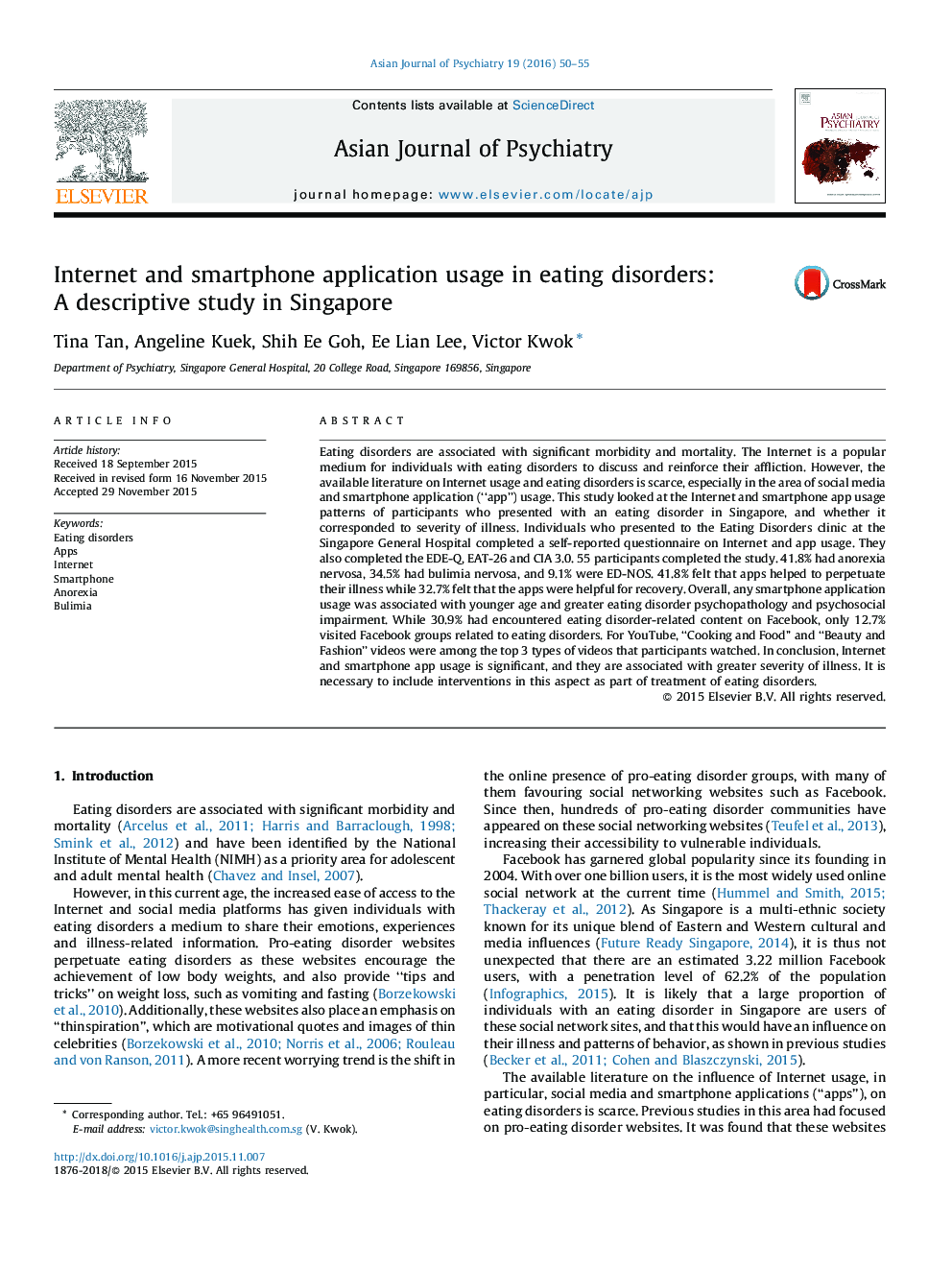| Article ID | Journal | Published Year | Pages | File Type |
|---|---|---|---|---|
| 316706 | Asian Journal of Psychiatry | 2016 | 6 Pages |
•Internet and app usage is significant in individuals with eating disorders.•Usage is associated with younger age and greater severity of illness.•Interventions to target Internet and app usage should be included in treatment.
Eating disorders are associated with significant morbidity and mortality. The Internet is a popular medium for individuals with eating disorders to discuss and reinforce their affliction. However, the available literature on Internet usage and eating disorders is scarce, especially in the area of social media and smartphone application (“app”) usage. This study looked at the Internet and smartphone app usage patterns of participants who presented with an eating disorder in Singapore, and whether it corresponded to severity of illness. Individuals who presented to the Eating Disorders clinic at the Singapore General Hospital completed a self-reported questionnaire on Internet and app usage. They also completed the EDE-Q, EAT-26 and CIA 3.0. 55 participants completed the study. 41.8% had anorexia nervosa, 34.5% had bulimia nervosa, and 9.1% were ED-NOS. 41.8% felt that apps helped to perpetuate their illness while 32.7% felt that the apps were helpful for recovery. Overall, any smartphone application usage was associated with younger age and greater eating disorder psychopathology and psychosocial impairment. While 30.9% had encountered eating disorder-related content on Facebook, only 12.7% visited Facebook groups related to eating disorders. For YouTube, “Cooking and Food” and “Beauty and Fashion” videos were among the top 3 types of videos that participants watched. In conclusion, Internet and smartphone app usage is significant, and they are associated with greater severity of illness. It is necessary to include interventions in this aspect as part of treatment of eating disorders.
Graphical abstractFigure optionsDownload full-size imageDownload high-quality image (79 K)Download as PowerPoint slide
